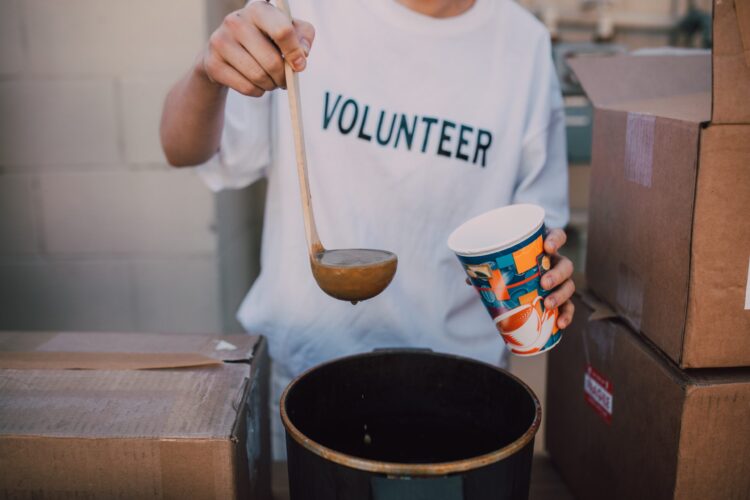Whether you have just finished your drug or alcohol addiction treatment program and are starting your new sober life or have been sober for months or years, giving back to others is an essential part of the addiction recovery process. Giving back in addiction recovery means volunteering one’s time and efforts in a way that benefits others. It can be a way of showing gratitude for the support you have received during their recovery journey. Or, it can be a way of finding meaning and purpose in your life after addiction.
What Does it Mean to Give Back?
When you volunteer your time and efforts to benefit others, you are giving back. It is a way to show gratitude. In addiction recovery, gratitude is a big part of changing a person’s mindset and life. Showing gratitude and volunteering have a powerful effect on a person’s recovery and overall well-being.
Giving Back and Gratitude
Gratitude helps you create a positive frame of mind and reduces negative thoughts and behaviors. To have a sense of gratitude, start by recognizing and being thankful for the people who have helped you. Personally thank everyone who believed in you and supported you in your recovery.
Then, give back. Helping others helps you to stay focused and connected to your recovery while providing a sense of fulfillment and happiness. The 10 Guiding Principles of Recovery from the Substance Abuse and Mental Health Services Administration (SAMHSA) explains that helping others plays an invaluable role in addiction recovery.
Seven Benefits of Giving Back in Recovery
Giving back is crucial in addiction recovery for many reasons. Here are seven of them.
- Helps you stay focused on your recovery. When you focus on helping others, it takes your mind off of your problems and challenges. It helps prevent you from relapsing and remain motivated in your recovery journey.
- Provides a sense of purpose and meaning. When you give back, you are doing something bigger than yourself. It helps you feel like you are making a difference in the world and that your life has meaning.
- Helps you connect with others. Giving back provides you with a sense of community and support, which is essential for long-term recovery.
- Improves your physical and mental health. Giving back can improve your sleep, boost your immune system, and reduce your risk of chronic diseases. It can also help reduce depression, stress, and anxiety.
- Helps you build self-esteem and confidence. When you help others, you are giving yourself proof that you have the power to make a difference.
- Helps you learn new skills. Volunteering provides an opportunity to expand your knowledge while learning new skills. It helps you to grow and develop as a person.
- Helps you gain a better perspective. Giving back helps you understand what is important to you. It gives you a different perspective on recovery, living a sober life, and life in general.
Ways to Give Back in Recovery
Deciding how to give back is up to you. Think about the time you have, the activities you enjoy, and the needs of your community. Make a commitment that works for you, and take your responsibility seriously. Use your commitment to strengthen your sense of purpose and reinforce your daily structure.
Volunteers are needed in many places throughout every community. Choose an organization or place that interests you. For example, if you enjoy being outside in nature, volunteer to clean up a beach or park. If you love animals, volunteer at a local zoo, animal shelter, or animal sanctuary. If you enjoy cooking, find a senior center or soup kitchen that needs volunteers. Help a child learn to read at a local library, assist patients and visitors at a hospital, or distribute food at a food bank. There is certain to be a volunteer opportunity that you would enjoy.
Additional ways to give back in recovery:
- Help at your 12-Step program. Volunteer to speak at a meeting and share your story, help set up and break down the chairs and tables in the room, be responsible for coffee and tea, or provide transportation for someone who needs it.
- Be involved with your family and friends. Host a game night. Take an elderly loved one shopping. Attend a child’s baseball game or concert. Volunteer to babysit, cook dinner, or help with cleaning. Show your loved ones you are grateful for their love and support.
- Donate to a cause or charity you care about. If you can’t donate money, donate time or materials.
We Can Help
Addiction is a chronic brain disease that is treatable. It can affect anyone. If you or a loved one struggles with drug or alcohol addiction, we can help you regain your sobriety. Contact Canyon Vista Recovery Center in Mesa, Arizona, and learn how to regain control of your life.





